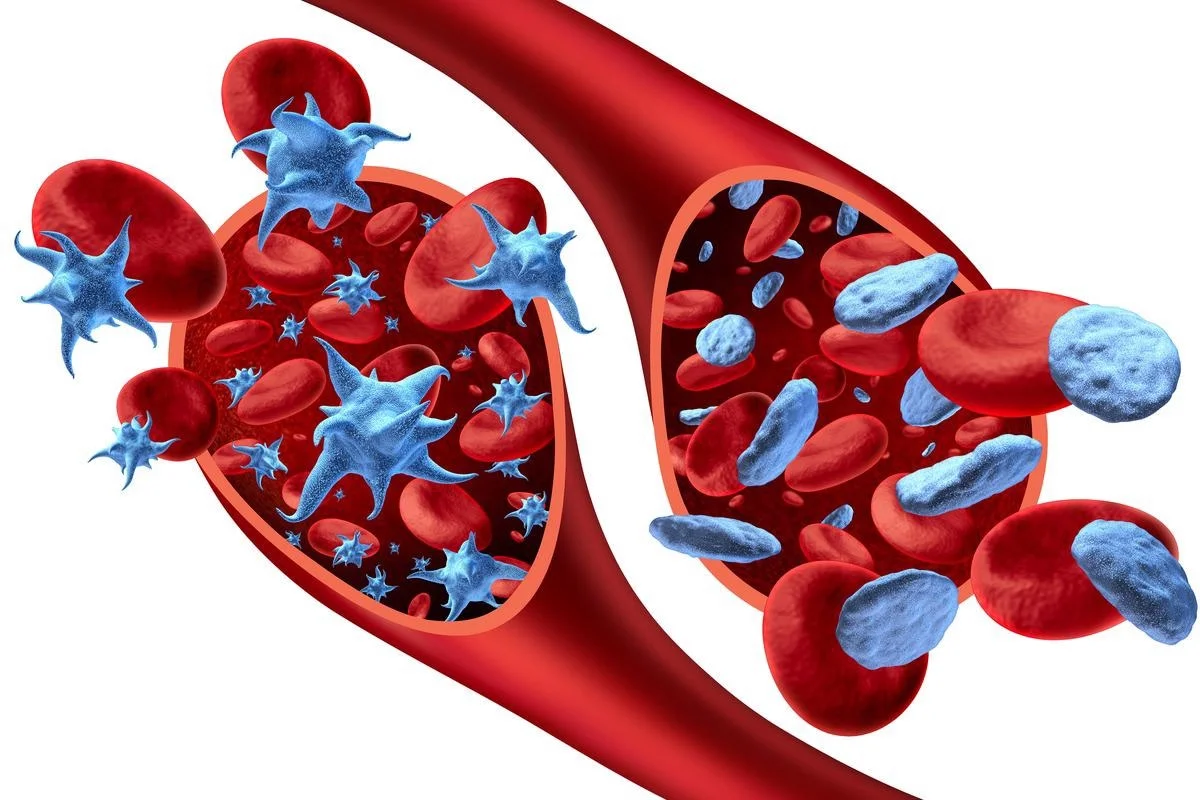
Thrombocytopenia: Low Platelet Count – Causes, Symptoms, and Treatment
Thrombocytopenia is a condition characterized by a low platelet count (below 150,000 platelets per microliter of blood). Since platelets help in blood clotting, a low count can lead to excessive bleeding, bruising, and delayed wound healing.
Causes of Thrombocytopenia
1. Decreased Platelet Production
- Bone marrow disorders (e.g., leukemia, aplastic anemia, myelodysplastic syndromes)
- Nutritional deficiencies (Vitamin B12, folate, iron deficiency)
- Chemotherapy & radiation therapy (suppress bone marrow function)
- Viral infections (HIV, hepatitis C, dengue, Epstein-Barr virus)
2. Increased Platelet Destruction
- Immune thrombocytopenia (ITP) – Autoimmune disorder where the body attacks its own platelets.
- Medications (e.g., heparin, antibiotics, anti-seizure drugs) can trigger drug-induced thrombocytopenia.
- Disseminated intravascular coagulation (DIC) – A severe condition where platelets are overused.
- Pregnancy-related thrombocytopenia – Occurs in late pregnancy but is usually mild.
3. Increased Platelet Sequestration
- Enlarged spleen (Splenomegaly) – Traps platelets, leading to a lower count in the bloodstream.
- Liver disease (Cirrhosis, portal hypertension) – Affects platelet production and distribution.
Symptoms of Thrombocytopenia
- Easy bruising (Purpura)
- Excessive bleeding from minor cuts
- Frequent nosebleeds (Epistaxis)
- Gum bleeding
- Heavy menstrual periods
- Small red or purple spots on the skin (Petechiae)
- Blood in urine or stool (Severe cases)
Diagnosis of Thrombocytopenia
- Complete Blood Count (CBC): Confirms low platelet count.
- Peripheral Blood Smear: Examines platelet shape and size.
- Bone Marrow Biopsy (if needed): Checks for bone marrow disorders.
- Blood Tests for Infections & Autoimmune Diseases: HIV, hepatitis, lupus.
Treatment of Thrombocytopenia
Mild Cases (No Treatment Needed)
- Monitor platelet levels regularly.
- Avoid NSAIDs (ibuprofen, aspirin) that worsen bleeding risk.
Moderate to Severe Cases (Treatment Required)
- Medications for Immune Thrombocytopenia (ITP):
- Corticosteroids (Prednisone) – Suppress immune system attacks on platelets.
- Intravenous Immunoglobulin (IVIG) – Increases platelet count quickly.
- Thrombopoietin Receptor Agonists (Eltrombopag, Romiplostim) – Stimulate platelet production.
- Platelet Transfusions: Used in severe cases (<10,000 platelets/µL) or before surgery.
- Plasma Exchange (Plasmapheresis): Used for thrombotic thrombocytopenic purpura (TTP).
- Splenectomy (Surgical Removal of Spleen): If the spleen destroys too many platelets.
Prevention & Lifestyle Tips
- Avoid alcohol & NSAIDs (they reduce platelet function).
- Eat a balanced diet (rich in vitamin B12, folate, iron).
- Use protective gear to prevent injuries and bleeding.
- Manage underlying conditions (e.g., liver disease, infections).
When to Seek Emergency Care
- Uncontrolled bleeding from gums, nose, or wounds.
- Blood in vomit, urine, or stool.
- Severe headaches or vision changes (could indicate brain bleeding).
Early diagnosis and management can prevent complications. If you suspect thrombocytopenia, consult a doctor for evaluation.

